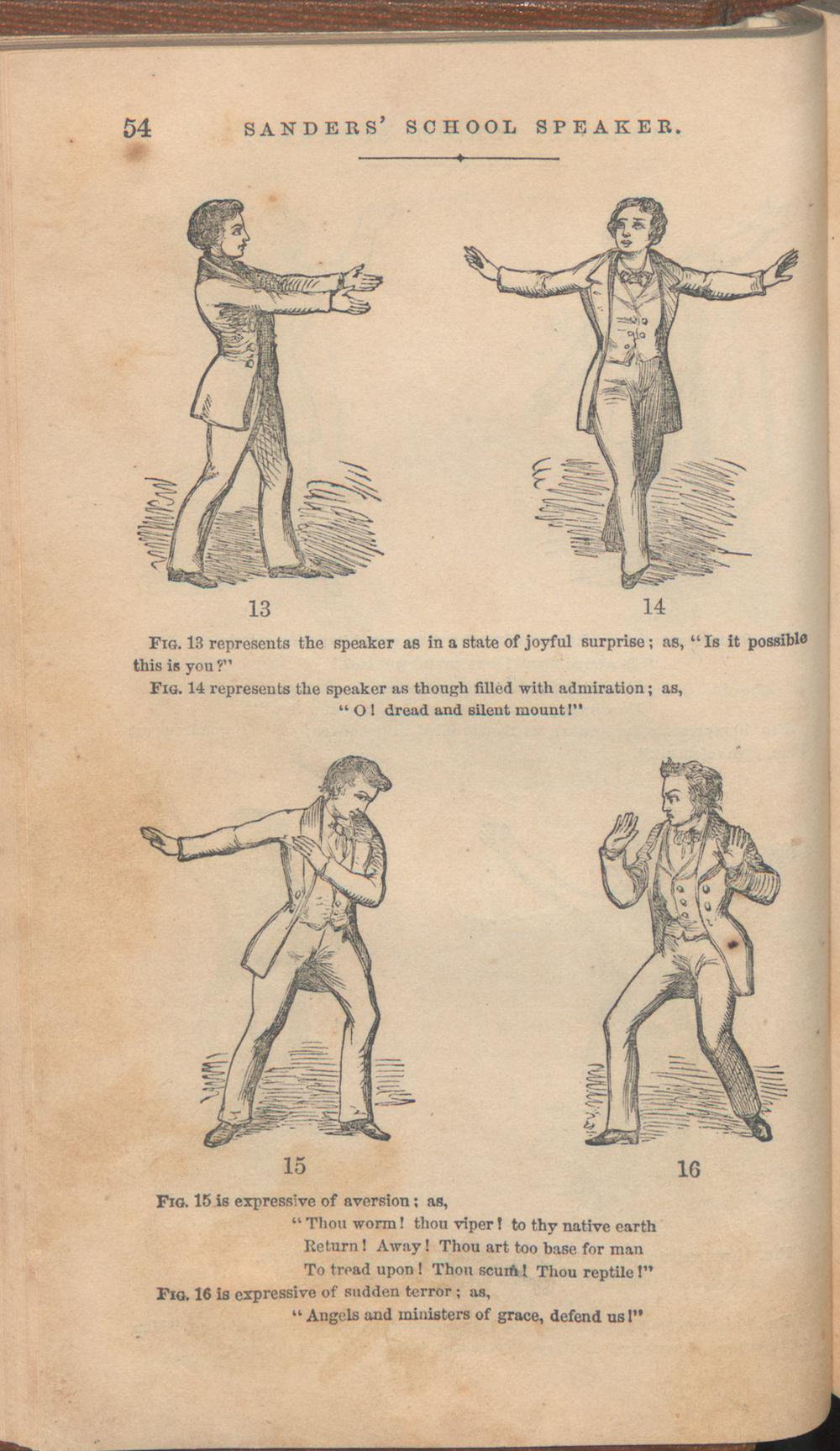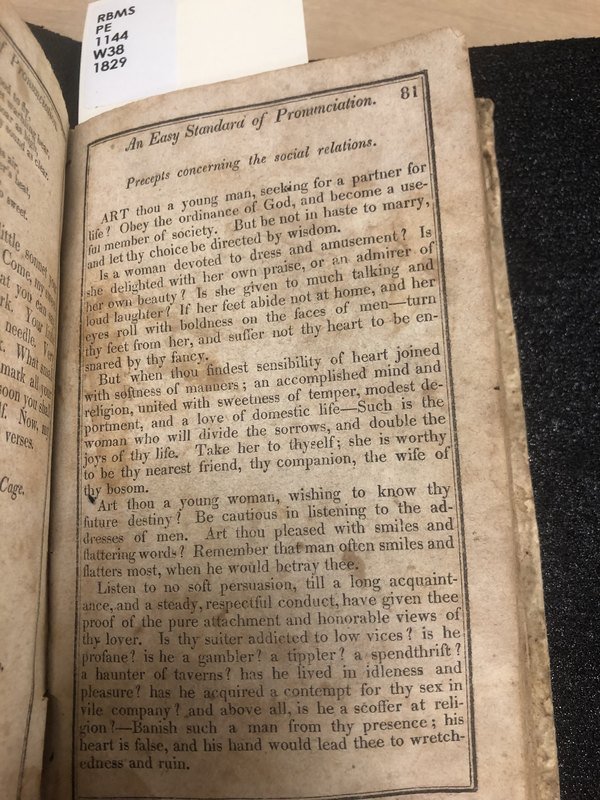Alternate Strategies for Different Audiences
One speech event that could be considered as a linked speech event with A Philosophical and Practical Grammar is another of Webster's instructional books on the English language: The American Spelling Book Containing the Rudiments of the English Language, which Webster published in 1829. These volumes perform similar social work, though they are written to serve vastly different audiences. A Philosophical and Practical Grammar is tailored, as discussed, for an audience of the highly-educated upper class, and thus details the minutiae of written and spoken grammar. The American Spelling Book, on the other hand, was written "for use in schools," and centers primarily on standard pronunciation and moral lessons. Webster positions himself to explicitly deliver crucial social information to the schoolchildren he imagines reading this book: they are by default "unlettered men," so when Webster aligns himself with them in opposition to people of poor moral character, he does so directly. His educated adult readers, in contrast, are assumed to already be aware and in agreement with Webster's moral stance, so no outright lectures are necessary; Webster need only provide them with the tools to make their characters known to their peers.

